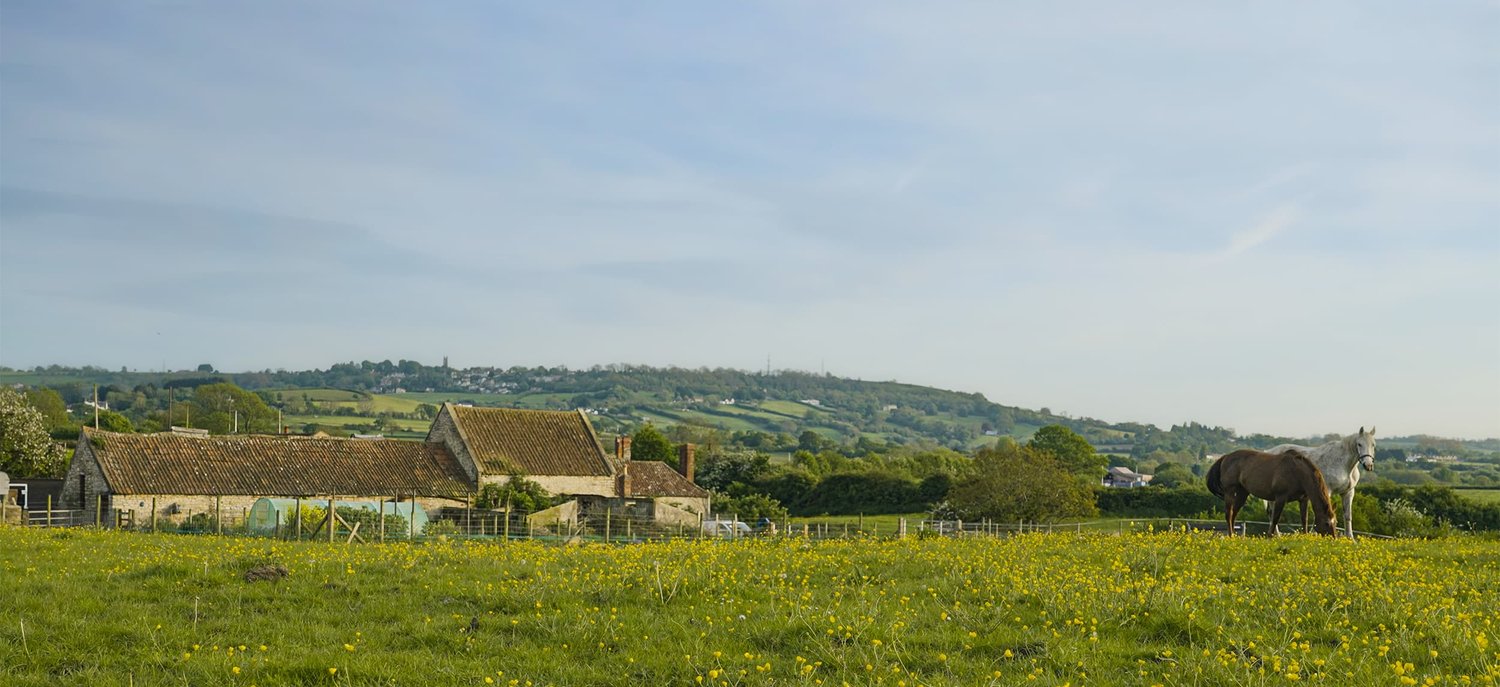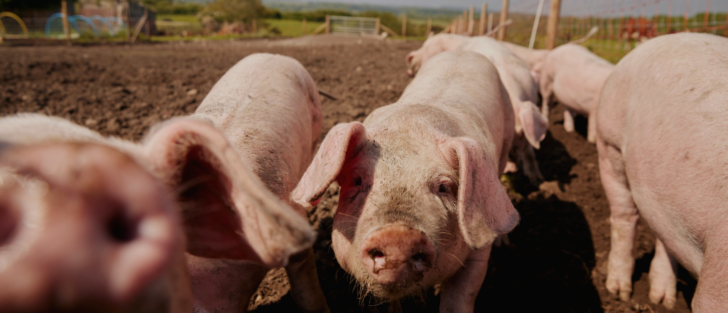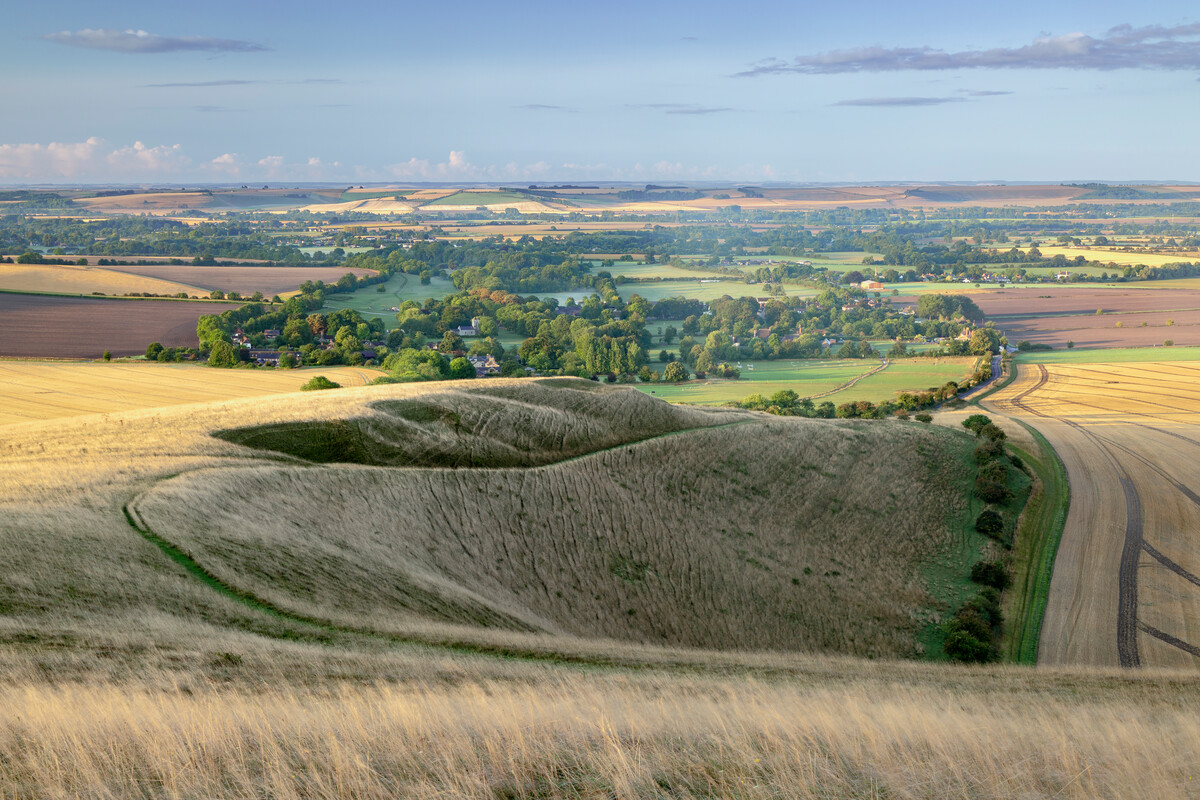Yew Tree Farm, Bristol

Yew Tree Farm is a relatively small 24 hectare livestock farm with cattle, pigs and poultry, raised on traditional meadows that run down from the beautiful Bristol escarpment to the floodplain below. It sits on the south-west side of Bristol within the city limits, which makes it Bristol’s last working farm.
In so many ways it is a textbook example of what farms on the urban edge could and should be. The farmer, Catherine Withers, has nurtured it to create a haven for wildlife, opened it up to local people who cherish its natural beauty and made a successful business selling the produce locally. Yet, despite being designated a Site of Nature Conservation(i) and sitting in protected Green Belt, proposals to extend the city cemetery and for new housing have already made the farm smaller and made its future more precarious.
From new generation to regeneration?
The farm runs deep in Catherine’s family. Her grandfather was a tenant, her father and aunt bought the farm in the 1970s; and Catherine was born, grew up, and has farmed there ever since. She started conventionally raising pigs intensively in sheds – 80 sows producing young pigs sold on to a Yorkshire company –and though they didn’t use pesticides and chemical fertilisers, fields were treated heavily with the manure from livestock on antibiotics. Yet, with the costs of bought-in feed and other inputs, the pigs barely turned a profit.
Catherine took a break from the pigs while raising a family, though continued to look after her father’s cattle on the land. Her return to farming began a journey towards working more closely with nature. She had a growing realisation of how precious the farm was for its beautiful local landscape and its wildlife. She acknowledges that it was local people who alerted her to its value.
The farm was already under pressure then to be developed. But in 2020, Bristol council announced an ecological emergency which felt like a clarion call to protect the nature the farm nurtured. Catherine invited Avon Wildlife Trust to assess the farm’s ecology, and she began to understand how she could use nature to help her farm. She has slowly transformed it by shifting to lower intensity farming: the cattle graze pastures but with rest periods; new orchard trees have been added and wildflower hay meadows restored to glory with over 90 species of herbs and grasses; the pigs have come back but with lower maintenance pedigree Welsh lop pigs which go outdoors for four hours a day. As better mothers, they raise their young well and make less work for Catherine. The farm now hosts a multitude of insects; including a new species of grassland fly as well as skylarks, harvest mice and rare dormice, adders, and otters in the stream on the floodplain.

Nourishing local people
For Catherine, looking after nature and the environment go hand-in-hand with running a business that feeds people in the local area.
She sells the farm’s pork, beef, chicken and eggs at the shop on site but also as prime ingredients in an all-day breakfast she cooks up at Bristol’s fortnightly farmers market. Unlike most farmers, Catherine regularly gets to meet the people who eat her food: ‘I have people that are sitting there eating your food right in front of you, and it’s food that you know that you’ve’ grown’. The supply chain is short, so very local – her livestock are slaughtered nearby at Langford – and butchered by a fifth-generation butcher next door who also prepares all the sausages and cures the bacon, gammons and hams. One of Catherine’s joys is collaborating with other local businesses: a local community farm also supplies chutneys and marmalade; and a Stokes Croft bakery in Bristol supplies bread. She sells black turkeys through another local producer. Local people value the farm and appreciate it, particularly as Catherine puts out welcoming notices which read: ‘This is collectively part of all of our last farm that’s in the city, please enjoy it. And please respect it.’ As Catherine adds: ‘People do. It is a really powerful message. And it’s a massive force for good. And I feel that the farm could be probably one of the most important farms in some ways for the whole of Bristol.’
Future on hold
We are calling for farms like Catherine’s to be better protected, with support to keep providing and increasing the benefits clearly valued by people in the area. Yew Tree farm ticks all the boxes for what should be a sustainable farm on the edge of the city: for nature, for producing high quality food sold locally, and for giving people in the city vital access to beautiful landscape and wildlife. This is exactly the rich mix of things that we need from land on the urban edge. But if farmers are to invest in a new future for their farms, then they also need certainty about what the future holds, and we need Government and its policies such as the new Land Use Framework to provide it.
Read our Farming on the edge report
Endnotes:
(i) Site of Nature Conservation Interest – Wikipedia According to Wikipedia: Local sites do not have statutory protection (unless they are also SSSIs or LNRs), but local authorities are expected to take account of the need to protect them in deciding their planning and development policies.




